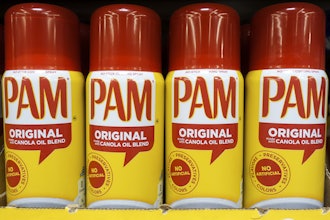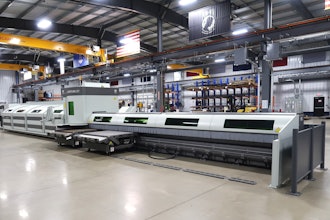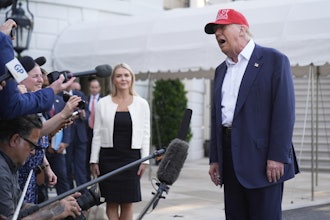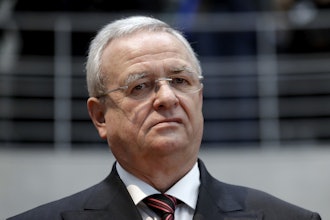DEARBORN, Mich. (AP) — Ford Motor Co. and the United Auto Workers union, which have agreed to proposed contract changes that would lower the automaker's labor costs, are running into opposition from some workers who say they've given too much already.
Workers at the Dearborn Truck Plant outside Detroit honked horns and shouted down Bob King, the union's top Ford negotiator, Wednesday evening as King tried to speak about the proposed changes, according to Gary Walkowicz, a member of the plant's bargaining committee.
Earlier in the day, Walkowicz and six other plant leaders had signed a letter to employees urging them to vote against the agreement because it would require too many concessions and would limit workers' right to strike.
"It's time to take a stand. This is a profitable company, and they're asking for more concessions," Walkowicz said.
Ford and the UAW announced last week that they had reached an agreement to bring Ford's labor costs in line with General Motors Co. and Chrysler LLC, whose workers already approved changes to their contracts. The UAW said about 250 local union leaders from around the country voted to recommend the changes.
Workers must ratify the changes before they can take effect. Ford's 41,000 UAW members are starting to vote this week. The union has asked local leaders to wrap up voting by Nov. 2.
The changes to the union's 2007 labor agreement guarantee future work at U.S. plants and give workers a $1,000 bonus for ratifying the deal.
But the proposal also freezes entry-level wages and changes work rules to require some skilled-trade employees to do more than one job. It also bans strikes on negotiations involving increases in wages or benefits, although it would allow strikes if the company proposes lowering wages or benefits, taking products out of plants or other issues.
Ford spokeswoman Marcey Evans said the company won't comment during the ratification process. Ford Executive Chairman Bill Ford, when asked about opposition to the deal Wednesday, would only say he's grateful to the UAW leadership for helping the company through the last few years and for continuing to make Ford competitive.
A message seeking comment was left with the UAW.
Some UAW officials are trying to persuade workers to accept the changes. Jerry Sullivan, the president of UAW Local 600, which oversees 8,000 Ford workers at the Dearborn Truck Plant and other facilities, said he wants the proposal to pass because it includes future product commitments. He also wants workers to take the $1,000 offered by Ford instead of letting the company spend it somewhere else.
Sullivan said workers don't understand that they're not losing their right to strike over most issues. He also pointed out that Ford workers haven't gone on strike since 1976.
"Everybody gets panicky about something we haven't used in 33 years," he said.
Still, many workers consider Ford a healthier company than GM or Chrysler, which accepted federal bailout funds and went into bankruptcy earlier this year. Ford turned a $2.3 billion profit in the second quarter, buoyed by $10.1 billion in debt reductions that cut interest payments.
Some workers also are angry that CEO Alan Mulally kept a huge pay package while they were asked multiple times to make concessions. Mulally's package in 2008 was worth $17.7 million, down more than 22 percent from the prior year, according to Ford's regulatory filings.
"The CEO pay and the fact that people are angry about making concessions again, it's going to make it tough," said Mark Caruso, president of a UAW local at a Saline, Mich., parts-making factory.
But Caruso points out that the union was able to preserve benefits for retirees and get new product commitments from the company, keeping many union jobs.
"That will make it easier to sell once the membership gets the real facts," he said.






















